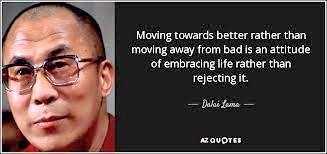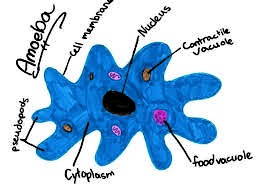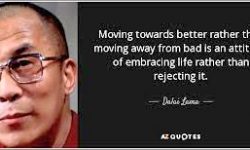Dr. William Bates, who pioneered the natural vision improvement discipline over 100 years ago, wrote extensively about this concept. Based on his experience with thousands of patients, he realized that people see more clearly what pleases them, and less clearly what they don’t like, or what frustrates or scares them. He called the former optimums, and the latter pessimums.

This doesn’t make sense if you think our sensitive eyes are just camera-like machines, which need to be properly calibrated to work correctly. It seems that there is an emotional component to vision as well as a physical one. Maybe on the eye chart you can see a letter which is your own initial more clearly than other letters in the same row, of the same size. Why is this?
When I first started studying vision improvement in a dedicated way, the notion of optimums and pessimums fascinated me. It reminded me of the one-celled creatures we’d learned about in high school biology, the amoeba and the paramecium, with their tropisms to either approach or avoid an external object. The tropism was a positive one if it led the organism to move toward something it wanted, say food. It was a negative tropism if it led the animal to move away from something unpleasant. Could clear vision be as simple as teaching our visual energy to feel comfortable moving toward everything?

Dr. Bates did write about turning pessimums into optimums, seeing more clearly that which formerly had been troublesome to look at. This happened naturally for me as my vision improved. Probably most things I looked at were pessimums to begin with, when my vision was -10 and I was straining to see all the time. The left turn on a dark shaded curve into my housing development used to make me tense up as I approached it, worried some invisible vehicle would come speeding toward me. Danger! Danger! my cells were screaming, as I peered anxiously into the gloom. Now it’s only a mild visual challenge, since I have more confidence in my ability to see well.
The computer screen can become a pessimum for me if I’m not careful, especially if I haven’t taken a break in a while and I’m not thrilled about what I’m reading or writing. I can feel my posture starting to degrade as I lean closer to the screen, and a slight headache start, as my temples and brow get tighter. The screen is not the problem, my attitude and slumping energy is! Time for a palming break, or a drink of water, or a walk outside, to shift my energy, and my visual brain, to a more positive state.
So maybe turning our pessimums into optimums, seeing everything clearly, has as much to do with our attitude as with our eyes. If you’re in a job you hate, you probably won’t be happy looking at much while you’re at work. I’d encourage you to find the positive there, even if it’s something minor like a plant in the office, and notice how you enjoy looking at it. Then see if you can expand that to enjoy looking at something else. Seeing well comes from being well, physically, mentally, and emotionally.
get help on our Facebook Group!

I wore strong glasses, then contact lenses, from age 5 into my 40s. While making many mistakes, eventually l learned how to improve the way I use my eyes and to see in a more relaxed, healthy manner. It is my pleasure to coach others to do the same. Visit me at https://NancyLNeff.com.

I was American by nationality, but foreign born. Things that were a challenge to most children my age, were a nightmare to me. I was also obese, which didn’t help. When I was given an opportunity to assist other schoolmates by placing and re-placing a high-jump bamboo pole, I thought, “That means they won’t bother me about jumping!” So, I relaxed! The next thing I knew, someone jumped and hurled the pole into my eye! I was rushed to the doctor’s office of the small town, who had to fish pieces of bamboo out of my eye. It was frightening! Sadly I relished everyone’s pity. Thankfully I started to protect my eyes more, but I still had another lesson to learn – believe it or not, I actually bought glasses in order to look more sophisticated! I had confused emotional self-pity with my gift of being able to see! My eyes were made to serve design, not preference.
Wow, Paul, what a story (about the bamboo pole)! That’s a trauma to the eye, and I don’t wonder it might not want to see much after that. You might consider some journalling or other energy work to release this, if you haven’t already done that.
My holistic eye doctor tells of treating a young girl years ago who wanted glasses to look like John Denver, though her sight was fine. After explaining the situation to her parents, he gave her glasses with no prescription, which she stopped “needing” in a few months.
Good morrning, Nancy!
You have a very mild, caring approach to moving towards better. It helps! Thank you.
Alvina
Hi Alvina, and thanks! The mild caring attitude in me bows to the mild caring attitude in you (big smile). Take care! 🙂
Thanks for another great article, Nancy. Couldn’t agree more. Our vision is influenced so much by our emotions and our attitude at any given moment. There are harmful behavioral patterns that we tend to fall into again and again. Bringing them into our conscious awareness lessens their power over us, and it’s the first step toward improving not only our sight but also so many other aspects of our life.
Yes, Andrew — this was a big revelation to me. I thought I was defective, not merely full of tension. 🙂 Like my holistic eye doctor said on my 1st visit years ago, tension can be released. I just had to learn how, which I am still doing to this day.